Biographies and Memoirs
- You are here:
- HOME
- Books Management
- Biographies and Memoirs

Do the accounts of extraordinary peoples' lives inspire your own life? Can the fortitude of individuals drive how you live your own life? Our authors in the Biographies and Memoirs genre bring you the stories of people who have survived and grown through the most difficult of situations. Their stories will move you to tears, to action, and to new levels in your own life. They will always do this for you on eBookHounds for free or for a discount.
Definition of the "Biographies and Memoirs Genre": Ebooks in both the Biographies and Memoirs genres focus on the life experiences of a single person. Biographies are generally broader in the subject matters of a person's life experiences, while memoirs are more honed into the memories of that person. However, there is very little difference between the two categories, which is why they are combined in a single genre. Ebooks in the Biographies and Memoirs genre also typically have a significant element of inspiration, as the stories which drove the writing of these ebooks are tremendously moving.
Examples of bestselling ebooks in the Biographies and Memoirs genre are Cheryl Strayed (Wild), Chris Kyle (American Sniper), Laura Hillenbrand (Unbroken), and Donna Mabry (Maude).

Everyone leaves death row. Few leave it alive.
During the summer of 1984 twenty-year-old Tommy Hamilton, the product of a deprived childhood in rural Alabama, shoots and kills his boss. Convicted of murder, Tommy is sentenced to death. Before facing the electric chair, one final appeal offers the chance to save Tommy’s life, if only his two Chicago-based lawyers and a nun from Alabama can prove he is not legally guilty…even if he is not truly innocent.
Tommy fears an incarcerated life more than the electric chair. As limited as his intellect is, he realizes that even a reduced life sentence without the possibility of parole is—like electrocution—a death-in-prison sentence. If his lawyers are unable to get him out, Tommy professes a willingness to be executed.
Despite a material witness allegedly committing suicide and their client escaping from jail during the court proceedings, the lawyers present evidence that perjury tainted both Tommy’s conviction and death sentence. Nevertheless, the judge assigned to determine Tommy’s fate maintains that “Hamilton may deserve the death penalty and he may yet receive it.”
Summary Judgment is the fascinating true crime story told by one of Tommy’s lawyers that reveals how this life-and-death case unfolded in real time.

“If life must not be taken too seriously--then so neither must death.” The Victorian author Samuel Butler surely had it right. Why should there be any shame or hesitation in recalling the humorous moments provided by aging parents during the final miles of a life’s journey, especially when the humor in no way diminishes the affection and respect felt for a loved one? This book is about the author’s mother Nan and the moments, events, and utterances that made her simply unforgettable to those who knew and loved her. In this memoir, which speaks to all of us who have experienced the challenges posed by aging parents, laughter serves not only as an antidote to depressing reality but also reminds us that the deceased has lived, has amused, has warmed our hearts, and will remain alive through the memories of words said and actions taken during the final period of life.
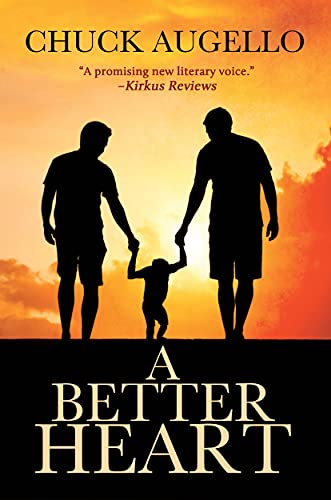
"A promising new literary voice." –Kirkus Reviews
For aspiring indie filmmaker Kevin Stacey, it's another day on the set of his first film, but when his estranged father, a failed Hollywood actor, arrives unexpectedly with a bundle of cash, a gun, and a stolen capuchin monkey, he's propelled toward the journey that will change his life.
The monkey, Henry, has been liberated from a research lab by animal rights activists. Inspired by his friend Veronica to reevaluate his relationship with other species, Kevin learns about the pain and suffering inflicted on lab animals as he forges a bond with the capuchin. When father and son embark on a road trip with Henry, Kevin is caught between the egocentric father who abandoned him and the temperamental monkey whose fate is in his hands. With both the FBI and his mother's ghost watching, will Kevin risk his career and his father's freedom to bring the stolen monkey to safety? Meanwhile, Veronica's encounter with an eccentric Catholic priest triggers her own journey toward change.
A heartbreaking yet comic family drama, A Better Heart examines the human-animal bond and the bonds between fathers and sons, challenging readers to explore their beliefs about the treatment of non-human species.
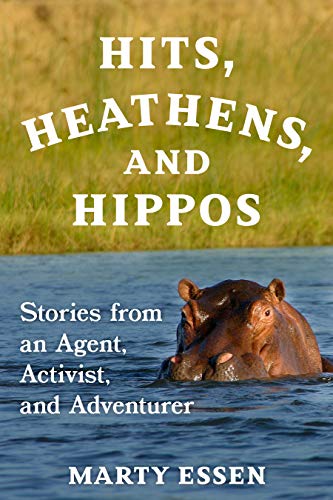
★ “A thoroughly absorbing and inherently fascinating account of a most unusual life lived out in a series of equally unusual circumstances.”—Midwest Book Review ★
Everyone has dreams of what they want to accomplish in life. Marty Essen’s childhood dream of becoming a herpetologist gave way to his dream of becoming a popular DJ, which led to his dream of becoming a big-time talent manager, which morphed into the dream of becoming an in-demand author and college speaker. While he achieved most of his dreams at various levels, he also realized that he didn’t necessarily have to reach the top to find success or happiness. Sometimes “almost” is close enough.
Hits, Heathens, and Hippos: Stories from an Agent, Activist, and Adventurer is a humorous and inspirational memoir that explores relationships and careers and how seemingly minor events can lead to life-changing results. Compelling stories have filled Marty’s life, and he tells those stories in a conversational style that combines his talents as an award-winning author with his talents as the creator of a one-man stage show that he has performed at hundreds of colleges across the United States.
This is a must-read for anyone faced with an unexpected career change, worried about finding and keeping the partner of their dreams, forced to take on bullies (whether individual, political, or corporate), eager for ideas to make life more satisfying, or just in search of a fun-filled adventure.
Marty’s stories include:
◆ Growing up with an over-the-top, born-again Christian father, who prayed aloud in restaurants, thought Satan possessed his Masonic lodge watch, and attempted to faith-heal his old Toyota.
◆ Becoming the youngest disc jockey in Minnesota history, where he survived an on-air attack from a jealous DJ and learned that rock ’n’ roll and country radio stations have vastly different groupies.
◆ Running multiple music talent agencies and becoming one of the top young talent managers in America.
◆ Telling the best lie ever to reel in and marry an amazing woman that the media would later dub as his “intrepid wife.”
◆ Moving to Montana, where he founded one of the state’s fastest growing independent telephone companies and an unusual baseball league with pro-prospects and out-of-control players.
◆ Surviving as an outspoken liberal in the most conservative region of Montana and dealing with the death threats and dirty tricks that came with it.
◆ Heartwarming and humorous stories from his relationships with musicians, governors, senators, and a very special Democratic nominee for President of the United States.
◆ Traveling to all seven continents in search of rare and interesting wildlife, backpacking with a tribe known for headhunting, and surviving a vicious hippo attack.
Be inspired, intrigued, and entertained!
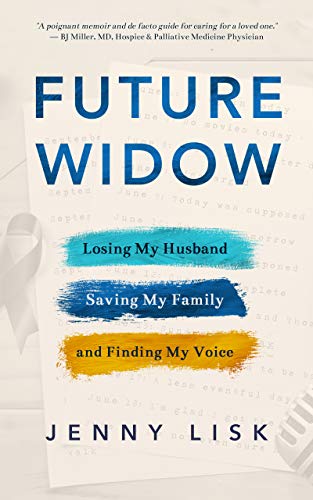
A heartbreaking doctor's visit. A fate she never saw coming. She’d dig deep for the strength she so desperately needed…
Seattle, 2015. Jenny Lisk was happy with a perfectly normal, busy life. But after the usual bustling week, Friday night turned from downtime into mild alarm when her forty-three-year-old spouse shared that he’d been feeling dizzy. And after ten days of his condition steadily worsening, she still wasn’t prepared for the stunning news: He was terminally ill.
Reeling from his diagnosis of an inoperable brain tumor, Jenny suddenly became not only a wife, mother, and career woman, but also a cancer-patient caregiver and parent of grieving children. And her many fears and uncertainties swirled around one relentless question:
Did she have what it takes to help her young family survive?
Through a vulnerable, honest account of preparing for the death of a loved one, Jenny shares tips and information about childhood grief, how to be there for mourning friends, and ways online communities provide essential support. And for those who feel lost and alone, or are grappling with any kind of loss, her deeply personal journey provides a universal beacon of hope.
Future Widow: Losing My Husband, Saving My Family, and Finding My Voice is a brave and raw narrative that doesn’t pull any punches on the realities of caregiving and bereavement. If you like captivating stories, authentic inspiration, and understanding the grieving process, then you’ll find encouragement in Jenny Lisk’s touching memoir.
Buy Future Widow to rebuild a life today!

"Anyone out there struggling to navigate mental illness should read this thoughtful book."
—Former U.S. Rep. Patrick J. Kennedy, founder of the Kennedy Forum
“Pat, we need to kill the dog.” A chill ran down Patrick Dylan’s spine as his wife spoke—psychosis had found their family again.
When a sudden mental illness struck his wife, Patrick Dylan found himself living with an eerie stranger. Scared and unprepared, he began a desperate battle to protect her from a mysterious disease, shelter their children from her bizarre behavior, and recover the woman he loved.
For years, Patrick and Mia Dylan enjoyed an intimate marriage that exemplified partnership. They worked together to create a loving home for their two children, enjoyed a close relationship with their extended family, and offered mutual support during hard times. But on the morning of Mia’s thirty-ninth birthday, everything changed.
Within weeks, she had been admitted to the emergency room, the hospital, and the local crisis facility, but none of the experts could provide an answer. As her illness eluded diagnosis, the family’s struggle was only beginning. A brave memoir in the tradition of Brain on Fire, Dylan’s Safe, Wanted, and Loved is a compassionate, honest, and gripping account of a family navigating mental illness.
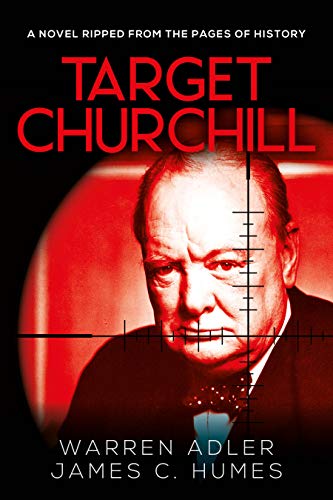
"...Adler & Humes have managed to make a crucial moment in modern history come alive..." –Thriller Books Journal
As Great Britain and the United States celebrate a victorious end to WWII, Joseph Stalin’s relentless Soviet Union is creeping across Eastern Europe leaving a trail of devastation and murder in its wake.
Winston Churchill, the cigar-puffing icon of the British fighting spirit, embarks on a crusade to lift the veil of secrecy that hangs over Stalin’s mission.
Westminster College in Fulton, Missouri sets the diplomatic stage upon which the world’s political players grapple for supremacy as Churchill delivers his fated Iron Curtain speech on March 5th, 1946.
Soviet operatives have infiltrated British and American governments at the highest level. As Churchill prepares to launch the Cold War, Stalin unleashes his trained mole, an American Nazi who served in Hitler’s SS.
His mission: assassinate Winston Churchill.
Churchill travels with a lone bodyguard, W.H. Thompson, a former British police officer who protected Churchill faithfully through the turbulent years of war. Thompson alone senses danger, but will his trained instincts and vigilance be enough to protect the former Prime Minister from a ruthless killer?
In this gripping historical thriller, battles are fought not on the beaches, on the landing grounds, in the fields, on the streets, or in the hills, but behind closed doors in the shadows of espionage.
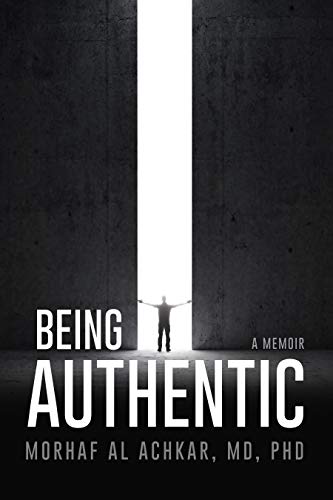
Our existence is fragile. I learned that in many intricate ways, so I do not take today for granted. I do not know what tomorrow will bring. I do not even know if tomorrow will come.
On the eve of Thanksgiving 2016, I received the diagnosis of stage 4 lung cancer. Next to dying, I fear the spread of cancer to my brain and losing my ability to think, speak, or write. This loss would be devastating to me.
The fragility of our life made me want to be authentic. Therefore, I am writing this memoir to be authentic—we become our true selves when we author who we are.
I am afraid of being forgotten. Death does frighten me. But more than dying, I am scared of having no one remember me or, even worse, of being recognized differently from who I was. At the same time, I have never thought that I was entitled to ask others not to forget me. But, not to be forgotten is precisely what I yearn for.
While I am writing for the other, I am simultaneously writing for myself. I am one of the readers and will test the subject as it gets written. My criteria are stricter. I want to say, “This is my narrative.”
I need to be able to say, “This is my narrative.”

The New York Times bestseller: “Every page is filled with revelations, gossip and fascinating details about Markham.”—Diane Ackerman, The New York Times Book Review
Born in England and raised in Kenya, Beryl Markham was a notorious beauty. She trained race horses and had scandalous affairs, but she is most remembered for being a pioneering aviatrix. She became the first woman to cross the Atlantic Ocean and the first person to make it from London to New York nonstop. In Mary S. Lovell’s definitive biography, Beryl takes on new life—vividly portrayed by a master biographer whose knowledge of her subject is unparalleled.

This book is going to take you on an amazing tour of 4 of the world’s oldest civilizations. In this first instalment of 101 Facts about Ancient Civilizations for Kids, we’ll be exploring Mesopotamia, Egypt, Rome, and China.
You’ll be learning about some of the zaniest fun-facts that there are to know about these civilizations, as well as delving into their rich histories, which have helped shape society as we know it.
Here’s a little secret, this book isn’t just another reading exercise, it’s a magical key to unlock wonderful adventures that will take you across the globe. Grab your passport and get ready for your expedition into the mysteries of these awe-inspiring ancient nations.
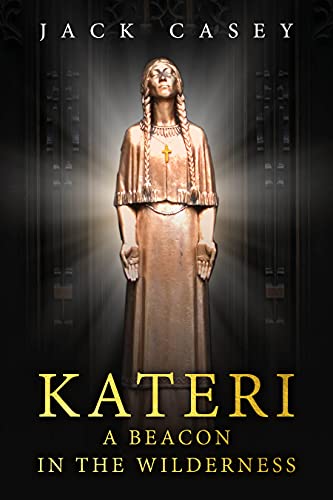
1660 - New France is a howling wilderness.
Smallpox devastates a Mohawk village, scarring and half blinding a four-year-old survivor. Now an orphan, the girl earns her keep by making embroidery and wampum belts.
Despite war and massacres around her, she resolutely follows her convictions, refuses to marry and comes to deeply embrace Christianity.
A young French Jesuit, Claude Chauchetier, has one glorious mystical experience of God which he can never replicate. Despairing, he chooses the hardship of missionary work only to be disillusioned by its harsh realities. Claude is astounded by Kateri, in whom he finds faith in its purest form, a powerful faith that will not be stilled by death and continues even now.
The amazing story of Kateri Tekakwitha, our first Native American saint.
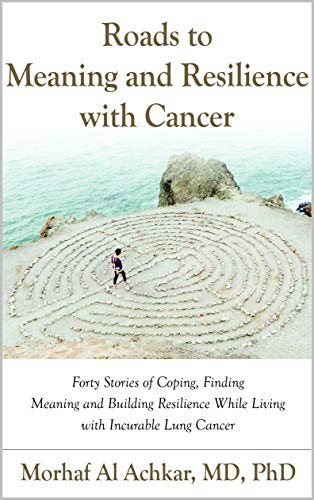
The book tells the stories of 39 patients with incurable lung cancer. It aims to help patients, families, and healthcare providers understand the experience of living with cancer. It also invites reflections on the essential questions of meaning, resilience, and coping with adversity in life. The author is a family doctor, teacher, and researcher who is also a stage 4 lung cancer patient himself. He is patient #40.
Patients with cancer often have an urgency to find meaning in life. They struggle with the illness, its emotional impact, and the consequences of treatments. However, with time, reflection, and support from others, they develop resilience. Cancer patients often are not passive. Instead, they choose different strategies to maintain and restore their health. They also leverage a variety of approaches to cope better with their struggle.
The book is for cancer patients who are tarrying at the limits of time. It is also for those who live around patients with cancer: caregivers, families and friends, and health care providers. People who struggle with other illnesses will also find aspects of their story reflected here. Also, the ones who have experienced a crisis of identity will discover elements of their story here as well. By sharing the experiences of the forty authentic individuals, the book opens the space for them to teach others. This book is about the essence of the human experience at its limits. It is for every reader.
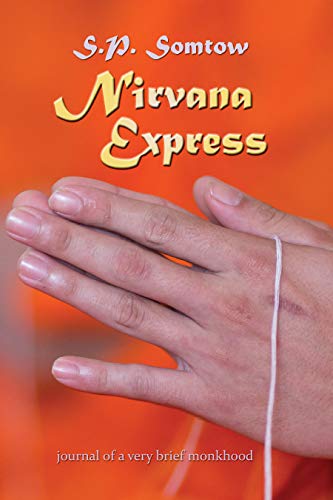
Novelist, composer and conductor Somtow Sucharitkul (who writes books under the name S.P. Somtow) had an extraordinary epiphany while driving downthe California coast. At almost 50 years of age, having spent very little time in his native Thailand, he was seized by an overwhelming desire to enter a Buddhist monastery. This is the story of that journey, full of surprises, culture shock, discoveries, humor and spirituality. Visions, dreams, comedy, philosophy, wisdom and superstition mingle in an unforgettable fusion.
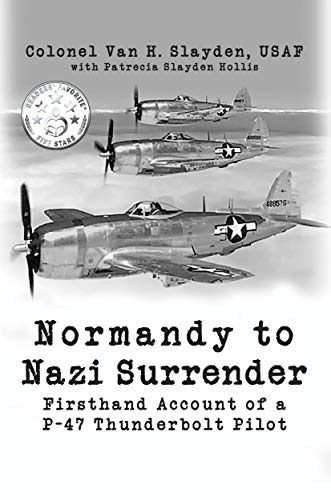
The late Van Slayden trained on the PT-3 kite-like biplane in 1937, but he learned fighter pilot operations flying “by the seat of his pants,” walking away from five crashes. Shortly after the invasion of Normandy, he landed on Utah Beach to help establish a US Army Air Forces’ (AAF’s) presence in Europe. He flew the P-47 Thunderbolt, a fighter-bomber, in combat over Northern France and commanded the 36th Fighter Group—the “Fightin’ 36th—at Batogne, St. Vith, the Bridgehead at Remagen, Operations Grenade, Clarion, Varsity and other missions. His 22nd Fighter Squadron was the first in the AAF to land voluntarily on German soil.
He was deep into Germany when the Nazis surrendered on May 8, 1945, which was remarkably anticlimactic. Van Slayden, a country boy from rural Tennessee, like so many of his contemporaries, stepped up to the challenge as part of the Greatest Generation.
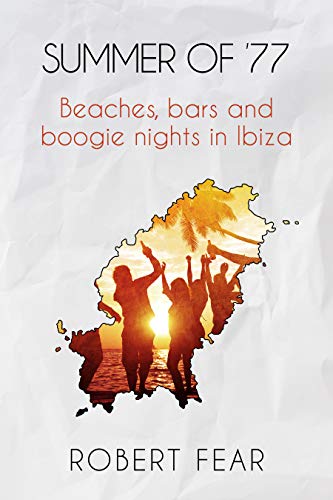
A holiday can change everything…
…it did for Fred.
He went on a two-week break with three friends to the Spanish island of Ibiza in July 1976. It was so enjoyable they all vowed to come back for the following season.
In April 1977, Fred returned to Ibiza, alone, in pursuit of his dream.
Behind him, he left his family, his girlfriend, and a promising career in banking.
Challenges lay ahead.
This would be no holiday.
He needed a place to stay and to find work that would sustain him through the next six months.
This true to life memoir follows 21-year-old Fred’s adventures as he acclimatises to living abroad. In a time before instant communication, he keeps in touch with family and friends by letter. They are his lifeline to home.
If you enjoy reading about people’s life-changing experiences, then this book is for you.
Get it now.
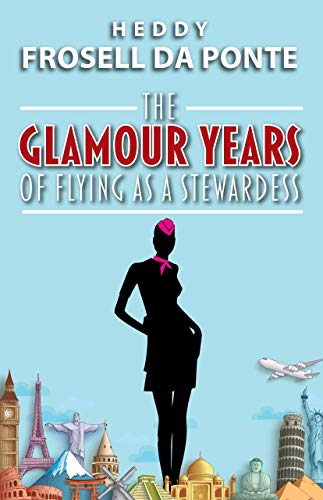
THE “GOLDEN AGE” OF FLIGHT ATTENDANTS!
There was a time when air travel itself was the destination. The airlines were international superstars; even among those long-gone carriers, their still-remembered names can conjure deep feelings of nostalgia, romance, and adventure: Braniff, Continental, BOAC, Swissair, TWA, Pan Am.This was the fifties and sixties. The world was on the move, and it was the new jet planes that were getting people there. But competition for the travel dollar was fierce, and Madison Avenue decided the face (and heart) of every airline would be the flight attendant, the stewardess. So it was that the “stew” became synonymous with the airline’s brand. She—and at that time they were exclusively female—was the airline. The stewardess became the fantasy every woman: glamorous professional, high-end server, customer service expert, nurse, therapist, and in no small measure: sex symbol. And to that end, these women were carefully selected for their looks and brains, then rigorously trained for weeks, and finally dressed as high-flying, high-heeled models in uniforms often created by top fashion designers.
Heddy Frosell da Ponte was one of those chosen women. She was the ideal candidate to be employed by Pan Am in the 1960s: a pretty female with a terrific figure, under thirty-two years old, unmarried, and a speaker of multiple languages. The Glamour Years of Flying as a Stewardess is Heddy’s fascinating, often times hilarious collection of exploits as she traveled the world as a stewardess during the golden age of international air travel. This remarkable book is also a rare look back at the people, places, cultures, and lifestyles gone forever, but now brought back to vivid life by a stewardess-turned-author who knows how to tell a fast-moving tale. So buckle up; this will be one flight you’ll never forget.
"A wonderful slice of yesteryear, a chance to lose yourself for an hour or two, and Heddy Frosell Da Ponte is just the perfect travel guide. Enjoy!"--Chris Hammer, author of Family Can Be Murder (Dysorganized Crime Series), The Devil's Edge, and The Game Changer.
"Told with a terrific sense of humor and self-deprecation, Heddy Frosell De Ponte's story draws you into a world that should not be forgotten."--Lori Titus, author of Hunting in Closed Spaces (Marradith Ryder Series) and Black Magic Women: Terrifying Tales by Scary Sisters.
"If you need an uplift, inspiration, or just something to warm your heart, this book is definitely for you!"--Xtina Marie, author of Dark Musings and Collected Christmas Horror Shorts
About the Author
Heddy Frosell da Ponte was a flight attendant for forty five years. Now retired, she lives in Georgia. She is also the author of The Frosell Affair.
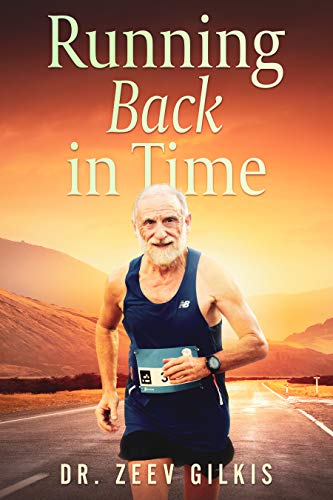
Dream big. Set ambitious goals. Be surprised with the outcome!
At the age of 68, while still recovering from his second knee injury, Dr. Zeev Gilkis decided to give himself an unusual present for his 70th birthday.
He dreamed of running a full Marathon, and completing the seventh decade of his life seemed to him the ideal timing to do so.
Perhaps this ambitious goal wouldn’t have been so unusual, had he been a very physically active person in his younger years. But Zeev is a cancer survivor who began his ‘career’ in sports relatively late, in his mid-sixties.
Along with his plans and dreams he kept a diary where he recorded the ups and downs, practical tips and original thoughts that crossed his mind in this long, challenging journey.
The key motive of this book is running. But it is not just running. It is a whole process of learning yourself, feeling your body and a lot of psychology.
The author sees sharing his experiences, as his mission in life to inspire others to set ambitious goals and go for it. Setting a goal is motivating and causes us to take out from ourselves the best!
Join Zeev in this adventure and discover that age doesn't matter. You too can achieve anything you truly dream of.
In his first two books: Unlock Bliss, A Memoir of Getting Happier and The Secret of Life, A Memoir of Getting Younger, Dr. Zeev Gilkis shares with readers the story of his struggle with cancer, some important and original thoughts and insights into life and happiness, such as that “Age doesn’t matter!” among many others.
In a very friendly manner and a conversational style, he describes some of the key processes in the brain, the role of the immune system and how to care for it, the story of how he got into sports in his sixties, and much more good stuff.
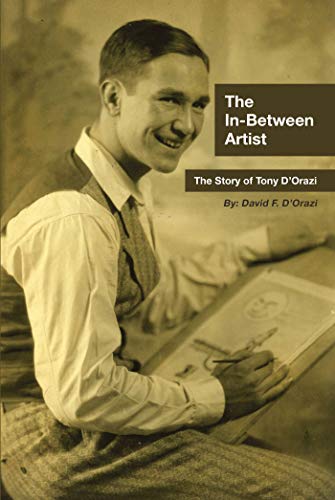
A Creative Mind Can Overcome Mental Illness
Imagine being one of the top cartoonists for the Walt Disney "Snow White and the Seven Dwarfs". in 1935, and giving this all up to have his own TV show on National TV station across the USA.
Imagine having five nervous breakdowns in between!
Imagine having schizophrenia on top of that!
This is a true story of Tony D'Orazi who went through all of the above....and then some.
Along his ascent, he would also meet his true love, whom he formed a vaudeville act with which he found them entrtaining crowds across America.
From there , he became a husband and father of four, who constantly struggled to find balance between his roles as a visual artist and family man, all while battling severe bouts of mental illness.
Draw inspiration form this incredible story. Pick up your copy today by clicking the Buy now with 1-Click button at the top of this page!
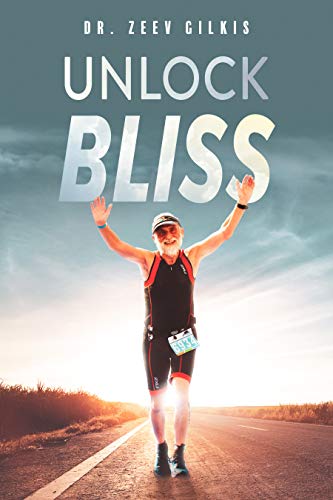
An inspiring memoir of a late bloomer who received his PhD in Artificial Intelligence at the age of 40, and after defeating an advanced stage cancer began competing in triathlon and surfing the waves, despite being already in his sixties, demonstrating that age doesn’t matter.
A chapter in the book proposes an original idea about reversing aging.
His life philosophy is based on the 4 pillars: being physically active, not compromising on the right nutrition, the mental attitude and relationships.
All these are discussed in the chapters of this book, including many practical tips.
In a very friendly manner and conversational style the author is sharing all his secrets of living better and longer, while enjoying every moment.
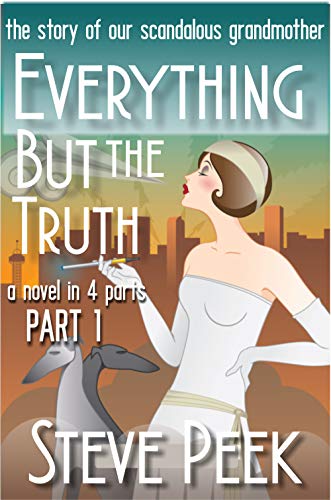
This is Part 1 of a 4 part novel about a woman born in the backwoods in1900. In those days, women couldn’t vote, drink in public, or speak their minds outside of their homes. Most women anyway, but one thing for sure, Margaret Rose Nolan, wasn’t most women. Born into north Appalachian's piedmont, she knew what she wanted, and it wasn’t to live in the backwoods of Alabama surrounded by poverty and ignorance. She didn't care what women were supposed to do or what others thought of her; she followed a single-minded purpose -- create opportunities for the things she desired. If getting what she wanted required manipulating men, then that was too bad for them. It wasn’t her fault men liked her, but she used it and used it well. In those days, women called her a Jezebel. She called them ignorant. She moved from moonshine to champagne, from rowboats to cruise ships, from foolish foothill suitors to society's elite, usually at the expense of others, even her own children.
Pat Conroy, my first cousin, and I spent time in our grandmother’s ‘big house’ in Atlanta. Pat and I traveled together to Piedmont, Alabama, to research our family history. I spent many summers visiting with the people who knew Margaret when she was young. Much later in life, our ailing grandmother came to live with my wife and me for more than a year. She regaled us with tales of her life. This book is a fictionalized account of her life. She lived the life as told, but just like her, the story has to have some lies and exaggerations, or it wouldn’t be our grandmother.